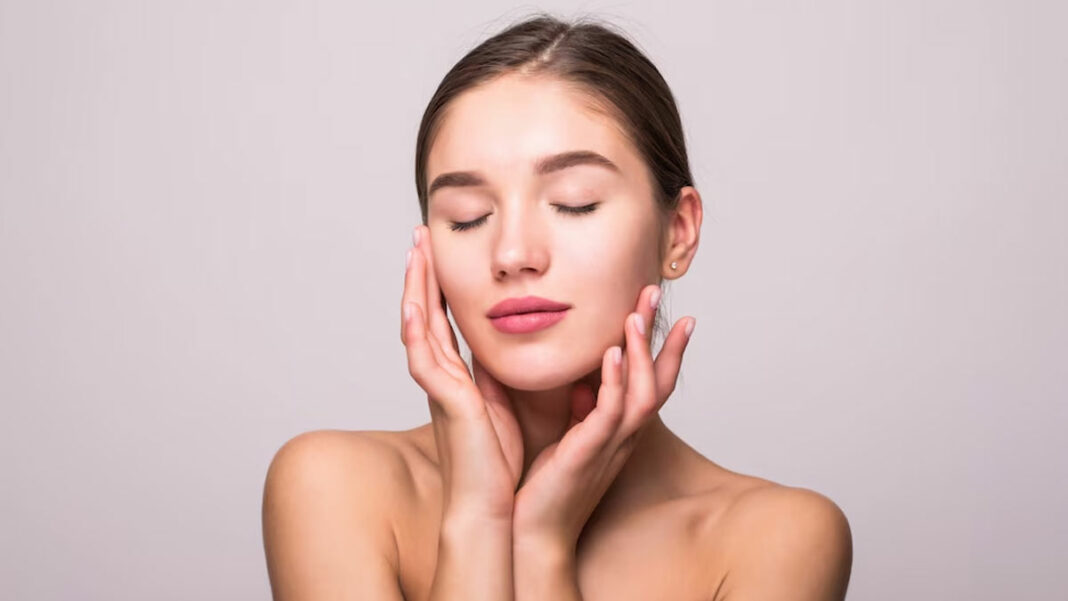Sunscreen works by absorbing or reflecting the sun’s UV rays. Ingredients such as zinc oxide and titanium dioxide physically shield against UV rays, while others like avobenzone and octinoxate absorb them. Sunscreen-infused cosmetics often contain UV filters that are similar to those found in regular sunscreens. Still, many factors influence the efficacy of these products. “SPF is a crucial consideration while choosing cosmetics. The SPF value indicates the difference in the length of skin reddening when a product is applied versus when it is not. Wearing SPF 30 should, in theory, assist you avoid burning in the sun for 30 times longer than if you were not protected. This does not imply that you are fully safe,’ shares Dr Madhu Chopra, Cosmetologist and Managing Director of Studio Aesthetique, Mumbai. In practice, many people do not use enough makeup to achieve the SPF listed on the label. The required amount of sunscreen for the face is roughly a nickel-sised dab, which is rarely achieved with makeup. In addition, makeup tends to wear off throughout the day, especially in regions prone to sweat and oil, reducing its protective efficacy. Another important consideration is the scope of protection provided. SPF measures protection against UVB rays, which cause sunburn, but it does not always indicate protection against UVA radiation, which causes skin cancer and premature ageing. Look for a broad-spectrum composition that protects against both types of UV radiation. The limitations of only using SPF makeup It’s pretty easy these days to find makeup that includes a built-in sun protection factor (SPF). Products ranging from concealers and moisturisers to eye shadow and lipstick routinely offer SPF 30 and above. Also read: Impact Of Sweating On Your Skin: Expert Lists Benefits And Side Effects Unfortunately, the SPF in makeup probably isn’t enough to limit the harmful effects of the sun’s skin-burning ultraviolet (UV) rays, says Dr Chopra. In fact, at best you’re probably getting about half the protection you think. The reason? Skin care companies slather on an extra thick layer of a product when testing for SPF. In the real world, you’re not spackling your face with that much of the product. “We put on just as much as we feel we can spread easily, then we’re off to the races,” says Dr Chopra. “So, we don’t usually get the full protection listed on the label.” To be fair, that’s not just a makeup issue. The same dynamic takes place with sunscreen. Research shows you’re probably not layering on enough of that protection-from-the-sun product, either. The solution? Double up. “Apply sunscreen with at least SPF 30 and makeup with SPF 30,” advises Dr Chopra. “Together, they’ll add up to the protection you need.” Sunscreen also will help keep your skin protected when your makeup inevitably rubs off. Best way to reapply sunscreen over makeup Getting a base layer of sunscreen on your face and topping it with SPF makeup is a good way to start any day, including cloudy ones. It’s not the end of your defensive work against pesky UV rays, though. Sunscreen should be reapplied about every two hours or more frequently if you’re swimming, sweating or otherwise weakening the previous protective layer. The reapplication rule applies even if you’re indoors, too. You can catch rays if you’re sitting by a window, after all. Plus, you’re going back outside eventually — so it’s best to just make regular reapplications part of your routine. Mineral powder sunscreens are ideal for touch-ups during the day, notes Dr Chopra. Also read; These Tips Can Help You Practice Safe Hair Removal If You Have Severe Eczema “Mineral powders are great for reapplying,” she continues. “They matte any shininess and add SPF at the same time. The minerals are also broad-spectrum by nature, which is what you want.” Another option? Try using mineral-based tinted sunblock, which Dr Chopra calls “one of the best new products” for protection against the sun. “There is some iron oxide added to the sunblock base of zinc and titanium to give it a tan color,” she explains. “This way, you get the broadest spectrum sun protection in a product that can even your skin tone, as well — and it is just one product to reapply.”Read NextDoes Face Waxing Make Your Skin Loose? Here’s What Dermatologist SaysDisclaimer All possible measures have been taken to ensure accuracy, reliability, timeliness and authenticity of the information; however Onlymyhealth.com does not take any liability for the same. Using any information provided by the website is solely at the viewers’ discretion. In case of any medical exigencies/ persistent health issues, we advise you to seek a qualified medical practitioner before putting to use any advice/tips given by our team or any third party in form of answers/comments on the above mentioned website.
